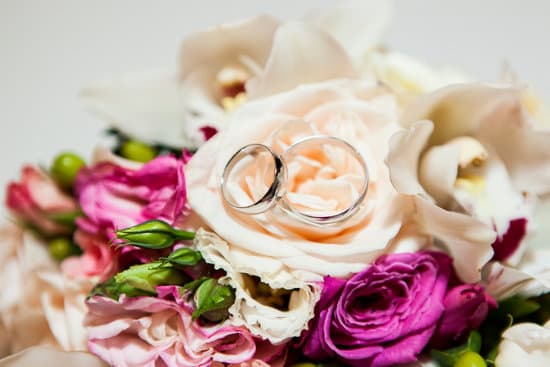After attending a friend’s wedding, you may have found yourself asking “Can I wear a wedding band if I am not married?” The tradition of wearing a wedding band has long been associated with being married, but in today’s society, the lines are starting to blur.
In this article, we will delve into the significance of wedding bands, explore the history behind this tradition and address the common question of whether unmarried individuals can and should wear a wedding band.
The act of wearing a wedding band is deeply rooted in symbolism and tradition. For many, it represents commitment, love, and fidelity within marriage. However, as attitudes towards relationships and marriage evolve, questions arise about the appropriateness of wearing a wedding band when not legally married. It is important to understand the origins of this practice before delving into these modern considerations.
By uncovering the historical context behind the wearing of wedding bands, we gain insight into how this tradition has transformed over time. Additionally, we can explore how different cultures view the act of wearing a ring to symbolize commitment and partnership. With an understanding of its historical significance, we can then begin to address whether or not unmarried individuals can partake in this particular custom.
The Symbolism of Wedding Bands
Wedding bands have long been considered a symbol of eternal love and commitment between two people. The circular shape of the band is said to represent never-ending love, with no beginning or end. In some cultures, the exchange of wedding bands also symbolizes the joining of two families and the creation of a new union. The tradition of wearing wedding bands dates back thousands of years and is deeply rooted in symbolism and meaning.
For many individuals, wearing a wedding band represents their commitment to their partner and serves as a visible reminder of their love and dedication. It is a tangible symbol of the vows exchanged during marriage ceremonies, signifying unity and fidelity. Whether it’s a simple gold band or an intricately designed ring, the symbolism behind wedding bands carries significant meaning for those who choose to wear them.
In modern society, the symbolism of wedding bands has expanded to encompass personal beliefs and values. Some unmarried individuals choose to wear wedding bands as a symbol of self-love, commitment to personal growth, or as a reminder of their own values and aspirations. As such, the meaning behind wearing a wedding band can differ from person to person, reflecting their unique interpretation and perspective on love and dedication.
| Symbolism | Meaning |
|---|---|
| Eternal love | Represents never-ending love |
| Unity and fidelity | Signifies unity and fidelity in marriage |
| Personal interpretation | Reflects unique perspectives on love and commitment |
The Origin of Wearing Wedding Bands
The tradition of wearing wedding bands dates back to ancient times, with evidence of their use found in numerous cultures across the globe. The exact origin of this tradition is not entirely clear, as it is believed to have emerged independently in different regions. However, one common thread among various historical civilizations is the significance placed on the circular shape of the ring, symbolizing eternity and unending love.
Early Civilizations and Wedding Bands
In ancient Egypt, wedding bands were worn on the fourth finger of the left hand, as it was believed that a vein ran directly from this finger to the heart. This romantic symbolism continues to influence modern-day wedding traditions. Similarly, in Ancient Rome, marriage rings were exchanged as a symbol of commitment and ownership. Throughout history, wedding bands have been used as tangible symbols of unity and love.
Evolution of Wedding Bands
As time progressed, the materials used to create wedding bands diversified. While early civilizations often crafted rings from natural elements such as reeds and hemp, the use of precious metals such as gold and silver became more widespread in later centuries. The significance of wearing a wedding band has remained consistent throughout history, representing a lifelong bond between partners.
Global Traditions
The tradition of exchanging wedding bands is not limited to Western cultures; it spans across continents and has different customs attached to it. From intricate designs and engravings in European cultures to simple bands in Asian traditions, the practice of wearing a wedding band signifies commitment and love around the world. Regardless of cultural differences, the symbolism attached to wearing a wedding band remains universal.
Can Unmarried Individuals Wear Wedding Bands? Debunking the Myth
Traditionally, wedding bands have been a symbol of commitment and love between married couples. However, in the modern era, there has been a growing trend of unmarried individuals choosing to wear wedding bands as well. This leads to the question: can unmarried individuals wear wedding bands? The answer is yes. There is no hard and fast rule that dictates that only married individuals can wear wedding bands.
In fact, many unmarried individuals choose to wear wedding bands as a personal choice rather than a representation of their marital status. Some may simply appreciate the aesthetics of a wedding band or find sentimental value in wearing one. It’s important to recognize that the meaning behind wearing a wedding band can vary from person to person, and it’s not always tied to marriage.
For some unmarried individuals, wearing a wedding band serves as a reminder of self-love and personal commitment. It can symbolize their dedication to themselves, their values, or even their career. In this way, the act of wearing a wedding band becomes deeply personal and meaningful, transcending its traditional association with marriage.
Ultimately, the decision to wear a wedding band as an unmarried individual is a highly personal choice. It’s essential to respect and understand that individuals may have different reasons for wearing a wedding band, regardless of their marital status. As society continues to evolve, so does our understanding of symbols like the wedding band – embracing this change fosters inclusivity and acceptance for all choices surrounding this tradition.
| Aspect | Description |
|---|---|
| Symbolism | Wedding bands represent love and commitment |
| Personal Choice | Individuals may wear wedding bands for personal reasons beyond marriage |
| Inclusivity | Embracing change fosters inclusivity for all choices surrounding this tradition |
Alternatives to Traditional Wedding Bands for Unmarried Individuals
Many individuals may find themselves wondering, “Can I wear a wedding band if I am not married?” The answer to this question is yes, as there are various reasons why unmarried individuals may choose to wear a wedding band.
However, some may prefer alternatives to traditional wedding bands that still hold significance and personal meaning without the societal connotations of marriage. In this section, we will explore some alternative options for unmarried individuals who wish to adorn a ring without symbolizing marriage.
Promise Rings
One popular alternative to traditional wedding bands for unmarried individuals is the promise ring. A promise ring symbolizes a commitment between two people, whether it be a promise of love, friendship, or another meaningful bond. Many individuals choose to wear promise rings as a symbol of their dedication and devotion to their partner without the legal implications of marriage.
Claddagh Rings
Another alternative option for unmarried individuals seeking a meaningful ring is the Claddagh ring. Originating from Irish tradition, the Claddagh ring features a distinctive design with heart, hands, and crown symbols. The heart represents love, the hands signify friendship, and the crown symbolizes loyalty. Unmarried individuals can choose to wear a Claddagh ring as a representation of their values and intentions in relationships.
Personalized Bands
For those who wish to wear a ring that holds personal significance but does not necessarily symbolize marriage, personalized bands are an excellent option. Individuals can opt for custom-designed rings that incorporate meaningful symbols or engravings that hold personal importance to them. This allows unmarried individuals to wear a ring that reflects their individuality and values without conforming to traditional wedding band symbolism.
There are several alternative options available for unmarried individuals who wish to wear a ring with symbolic meaning without aligning with traditional marriage symbolism. These alternatives provide opportunities for self-expression and personal significance while avoiding the implications of being mistaken for married when they are not. Ultimately, the choice of whether or not to wear a wedding band as an unmarried person is deeply personal and should be respected based on individual preferences and values.
Etiquette and Considerations for Wearing a Wedding Band as an Unmarried Person
Wearing a wedding band as an unmarried person can be a sensitive topic, and it’s important to consider the etiquette and potential implications of doing so. While there is no hard-and-fast rule about who can or cannot wear a wedding band, there are several factors to keep in mind when making this decision.
Firstly, it’s crucial to consider the cultural and societal norms surrounding wedding bands. In some cultures, wearing a wedding band without being married may be perceived as misleading or inappropriate. Additionally, some individuals may feel that wearing a wedding band without being married disrespects the sanctity of marriage. It’s essential to be mindful of these potential interpretations before deciding to wear a wedding band as an unmarried person.
On the other hand, there are also individuals who choose to wear a wedding band for personal reasons unrelated to marriage. Some people simply appreciate the aesthetic or sentimental value of a wedding band, regardless of their marital status. In these cases, it’s important to communicate one’s intentions clearly and respectfully if asked about the significance of wearing a wedding band while not being married.
Ultimately, the decision to wear a wedding band as an unmarried person is a personal one. It’s essential to consider both external perceptions and internal motivations when navigating this choice. Whether you choose to embrace alternative symbols of commitment or proudly wear a traditional wedding band, understanding and respecting others’ perspectives can help navigate this potentially delicate subject with grace and consideration.
- Wearing a wedding band as an unmarried individual
- Cultural and societal norms
- Perceptions around wearing a wedding band without being married
- Respecting cultural and societal expectations
- Personal reasons for wearing a wedding band
- Aesthetics and sentimental value
- Communicating intentions respectfully
- Navigating the decision
- Understanding external perceptions
- Embracing personal motivations
Personal Stories and Experiences
Many individuals may find themselves drawn to the idea of wearing a wedding band, even if they are not married. This choice can stem from various reasons, including personal symbolism, fashion preferences, or simply as a way to deter unwanted advances. Here are some personal stories and experiences from individuals who have chosen to wear a wedding band despite not being married:
- Some people choose to wear a wedding band as a symbol of commitment to themselves. This can represent self-love and serve as a reminder of their own worth and value. For these individuals, the act of wearing a wedding band is a form of self-expression and empowerment.
- Others may opt to wear a wedding band in social settings as a means of signaling that they are unavailable for romantic pursuits. This can be particularly common in professional environments or social settings where individuals may feel uncomfortable fending off unwanted advances.
- Additionally, some individuals may simply appreciate the aesthetics of wedding bands and choose to incorporate them into their everyday style. Whether it’s for the timeless elegance of the design or the sentimental value attached to the tradition, wearing a wedding band can hold personal significance for many unmarried individuals.
While there may be societal norms and expectations surrounding who can wear a wedding band, these personal stories highlight the diverse reasons why unmarried individuals may choose to adorn themselves with this symbol of commitment. Ultimately, the decision to wear a wedding band as an unmarried person is deeply personal and can vary greatly from one individual to another.
Conclusion
In conclusion, the tradition of wearing a wedding band is deeply rooted in symbolism and history, making it a significant and meaningful accessory for many individuals, regardless of their marital status. The act of wearing a wedding band can serve as a personal symbol of commitment, love, or simply as a fashion statement.
While there may be societal norms and expectations surrounding the wearing of wedding bands, it is ultimately up to each individual to decide whether they want to wear one, even if they are not married.
The debate over whether unmarried individuals can wear wedding bands has been ongoing, with varying opinions and perspectives. However, it is important to debunk the myth that only married individuals can wear wedding bands. In modern times, the choice to wear a wedding band is a personal one that is not confined by traditional notions of marriage. Unmarried individuals may choose to wear a wedding band for a variety of reasons that hold significance to them personally.
Furthermore, as society continues to evolve, so too does the concept of what constitutes a “traditional” wedding band. There are now alternative options available for those who wish to embrace the symbolism of a wedding band without adhering to conventional standards. Ultimately, whether married or not, the decision to wear a wedding band should be respected as an individual choice that holds personal meaning and significance.
Frequently Asked Questions
Is It OK to Wear Your Wedding Band Before You Get Married?
It is generally not common or appropriate to wear a wedding band before getting married, as it symbolizes a commitment that has not yet been made. Traditionally, the ring is exchanged during the wedding ceremony.
Is It Okay to Just Wear a Wedding Band?
It is absolutely okay to just wear a wedding band if that is your preference. Some people may choose not to wear an engagement ring and only wear a wedding band as it aligns better with their personal style or cultural traditions.
Why Would a Single Woman Wear a Wedding Ring?
There are various reasons why a single woman might choose to wear a wedding ring. It could be for personal reasons, such as wanting to deter unwanted advances from men or simply because they like the aesthetic of wearing a ring on that finger.
Others may choose to do so as a reminder of future commitment or as a symbol of self-love and empowerment.

I have been involved in marriages for over 20 years helping couples and singles understand more about them.





